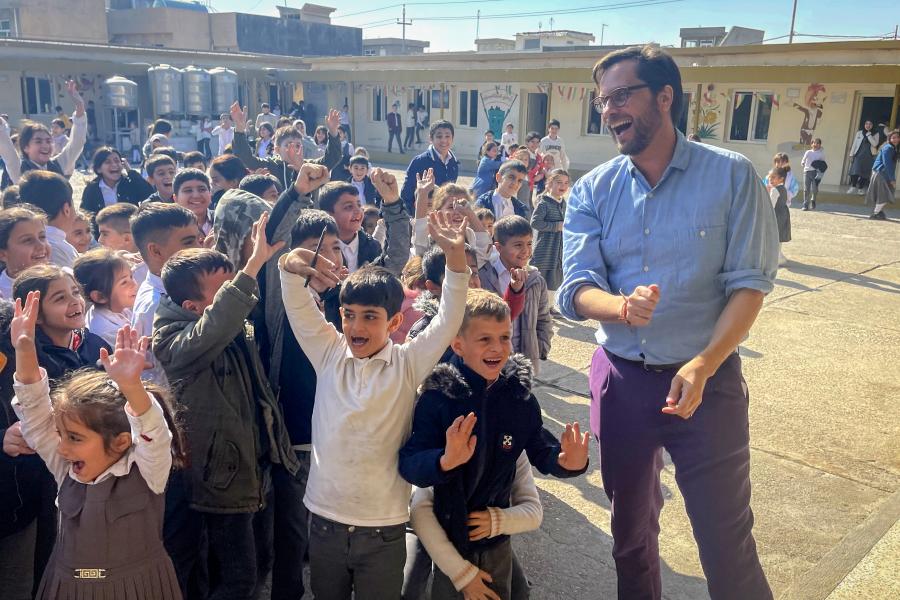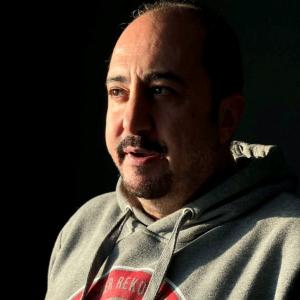Two months into the implementation of the Refugee Education Integration Policy, UNHCR meets with refugee children, their parents and teachers to discuss its positive impact
14 November 2022
Erbil, Iraq, 14 November 2022 - Today, a delegation from UNHCR, the UN Refugee Agency visited Raber Primary School in Kasnazan town, Erbil Governorate, where students from refugee and local communities attend school together.

With the start of the 2022/2023 academic school year, the Ministry of Education (MoE) of the Kurdistan Region of Iraq (KRI) introduced the Refugee Education Integration Policy (REIP) to support refugee children to access quality, inclusive and sustainable education through the public education system.
The policy aims at strengthening the inclusion and participation of refugees in community life in the KRI; and will be implemented gradually, starting with the first to fourth grades in the current academic year. The Kurdistan Regional Government (KRG) has set an example with its landmark decision to welcome refugees into the public education system.
In addition, the MoE recruited more than 400 qualified refugee teachers to help public schools in coping with these additional students. This provides opportunities for these qualified teachers to contribute to the society that welcomed them.
The delegation, led by Mr Jean-Nicolas Beuze, the Representative of the UN Refugee Agency (UNHCR) in Iraq, visited the school to observe the achievements of this much-welcomed policy.
During his visit, Mr Beuze, along with the UNHCR education team, met with the students as well as with refugees and local parents and qualified refugee teachers. The discussions provided UNHCR with valuable insights that will help continued support to the MoE as well as refugee parents with a view, in the years to come, to ensure quality education for all refugee children in KRI.
“It is heartening to see refugee students studying and interacting naturally with fellow students from the community hosting them. This positive step towards inclusion paves the way for refugee students to pursue higher education and work opportunities. It will help them lead prosperous lives and contribute to the communities in KRI which welcomed them,” said Jean-Nicolas Beuze, the Representative of UNHCR in Iraq. “We thank the people and the Government in the Kurdistan Region of Iraq, especially the Minister of Education, who decided to implement this new policy: this completes the remarkable support given to refugees in KRI.”
Around 270,000 refugees and asylum-seekers reside in KRI. The first implementation phase of the REIP is targeting grades one to four in the academic year 2022/23, which represent some 30,100 children. From data available to UNHCR’s partners in mid-October 2022, the school enrolment rate of refugee children in KRI in grades one to four has seen an increase up to 9%.
UNHCR is working closely with the MoE and education partners to empower students, teachers and parents from refugee communities and facilitate access to quality education for all. UNHCR, in coordination with education partners and the Directorates of Education, provides Kurdish language classes to parents, teachers and students in grades 1 to 4; and invests in school infrastructures.



